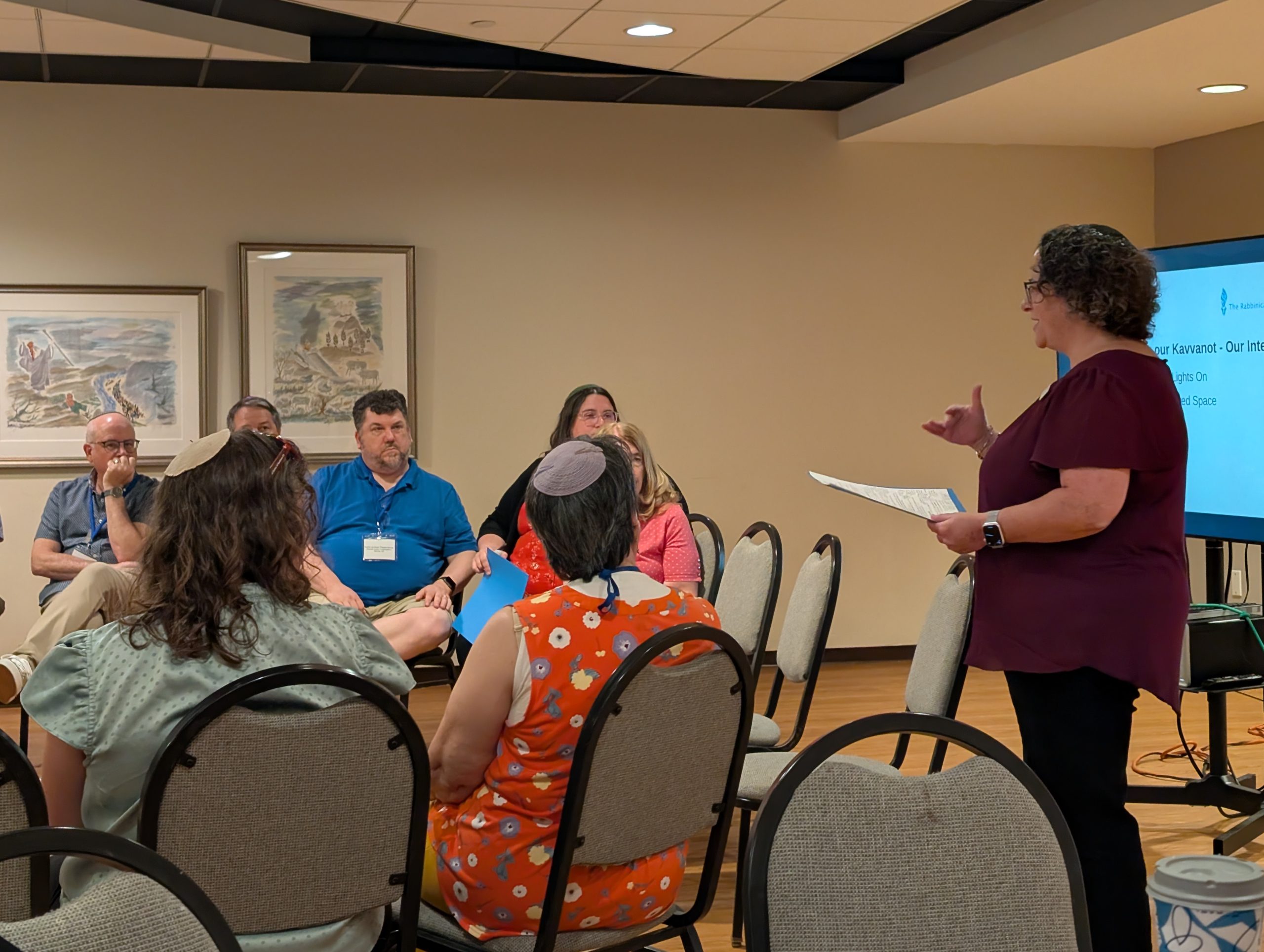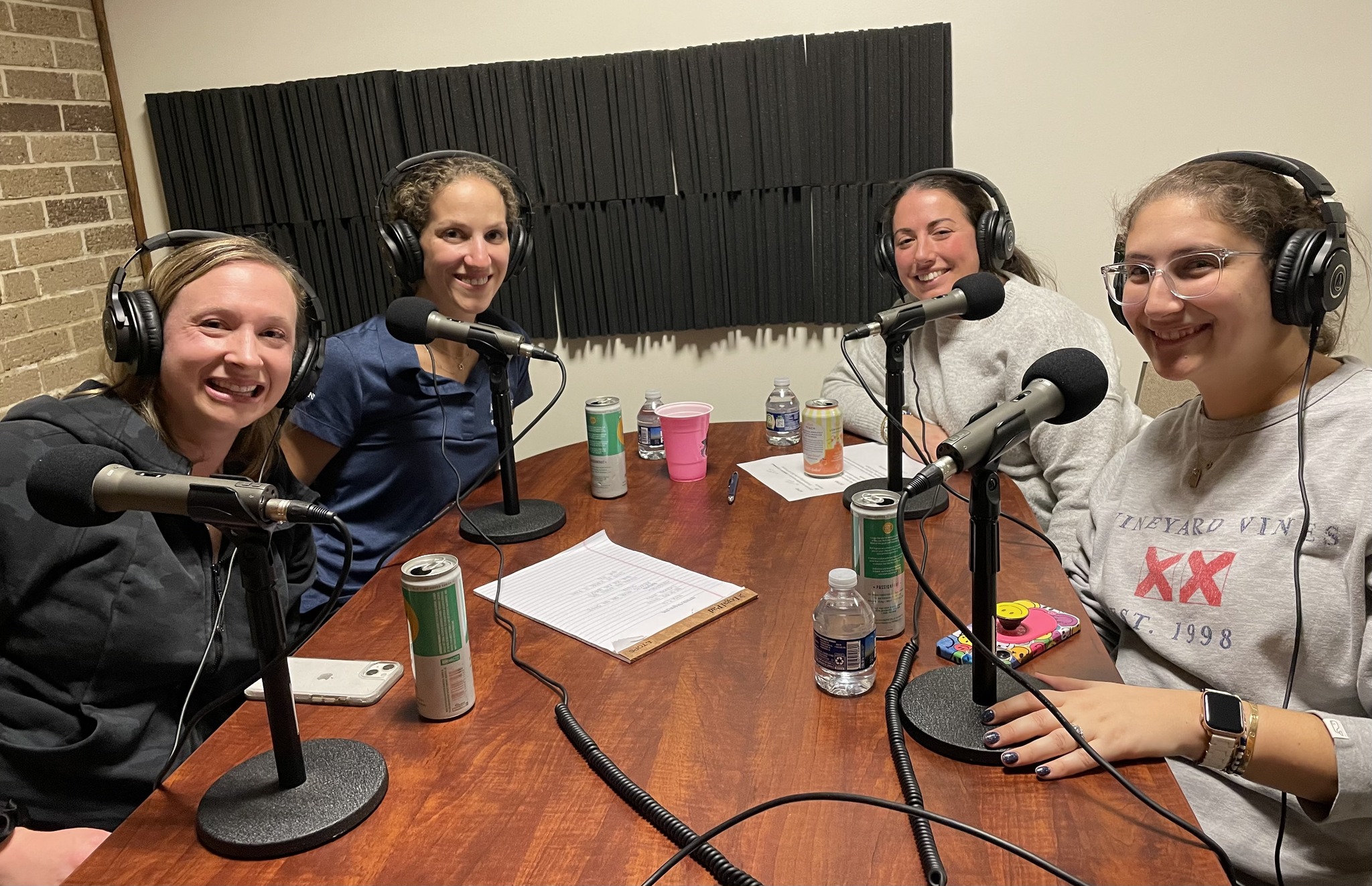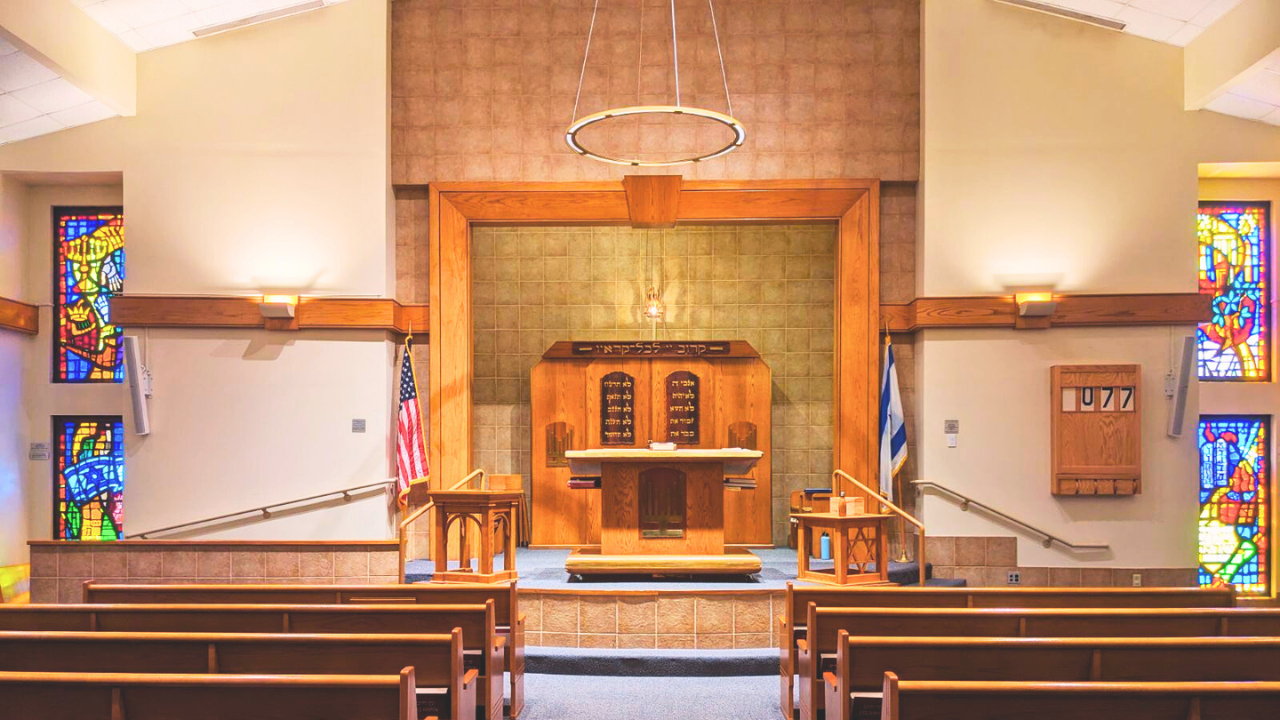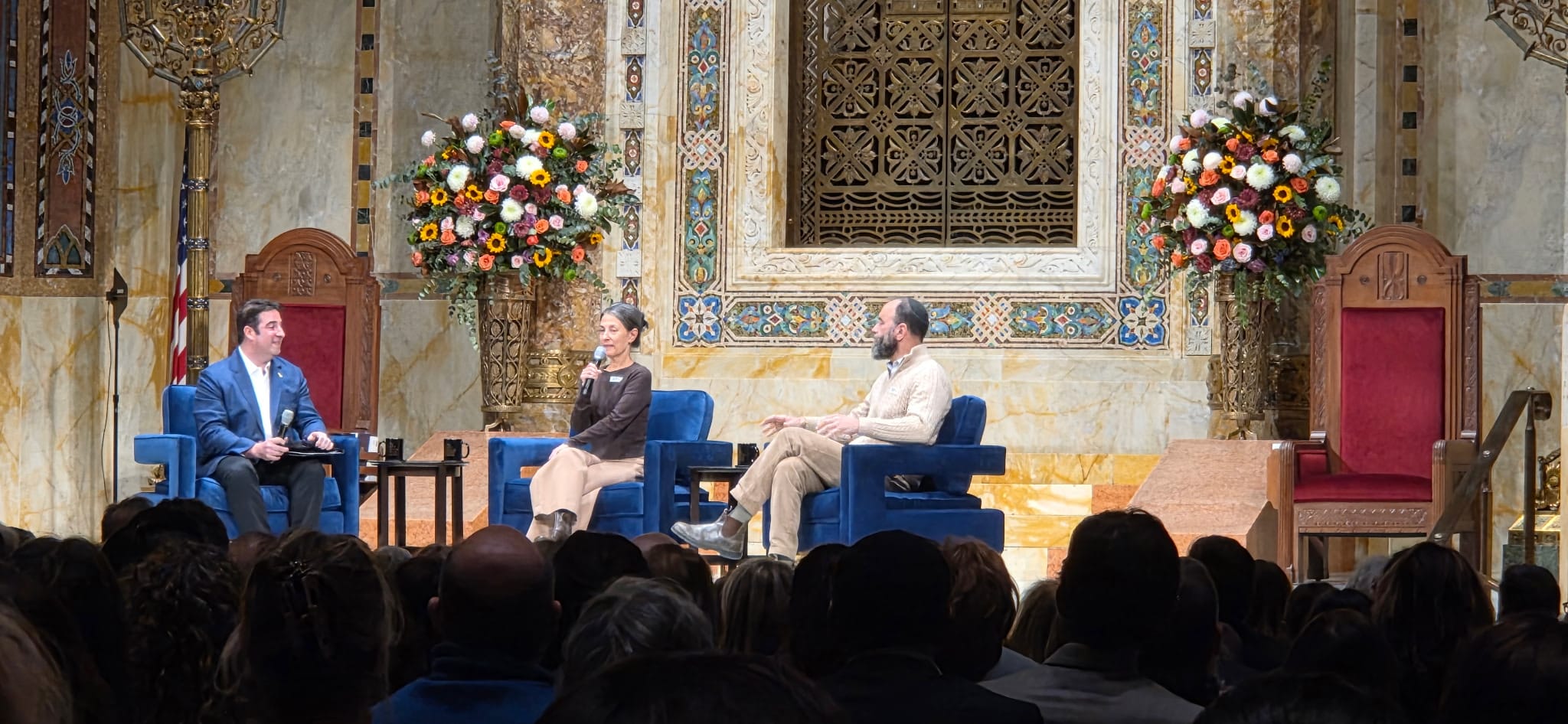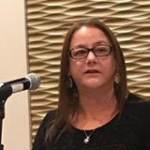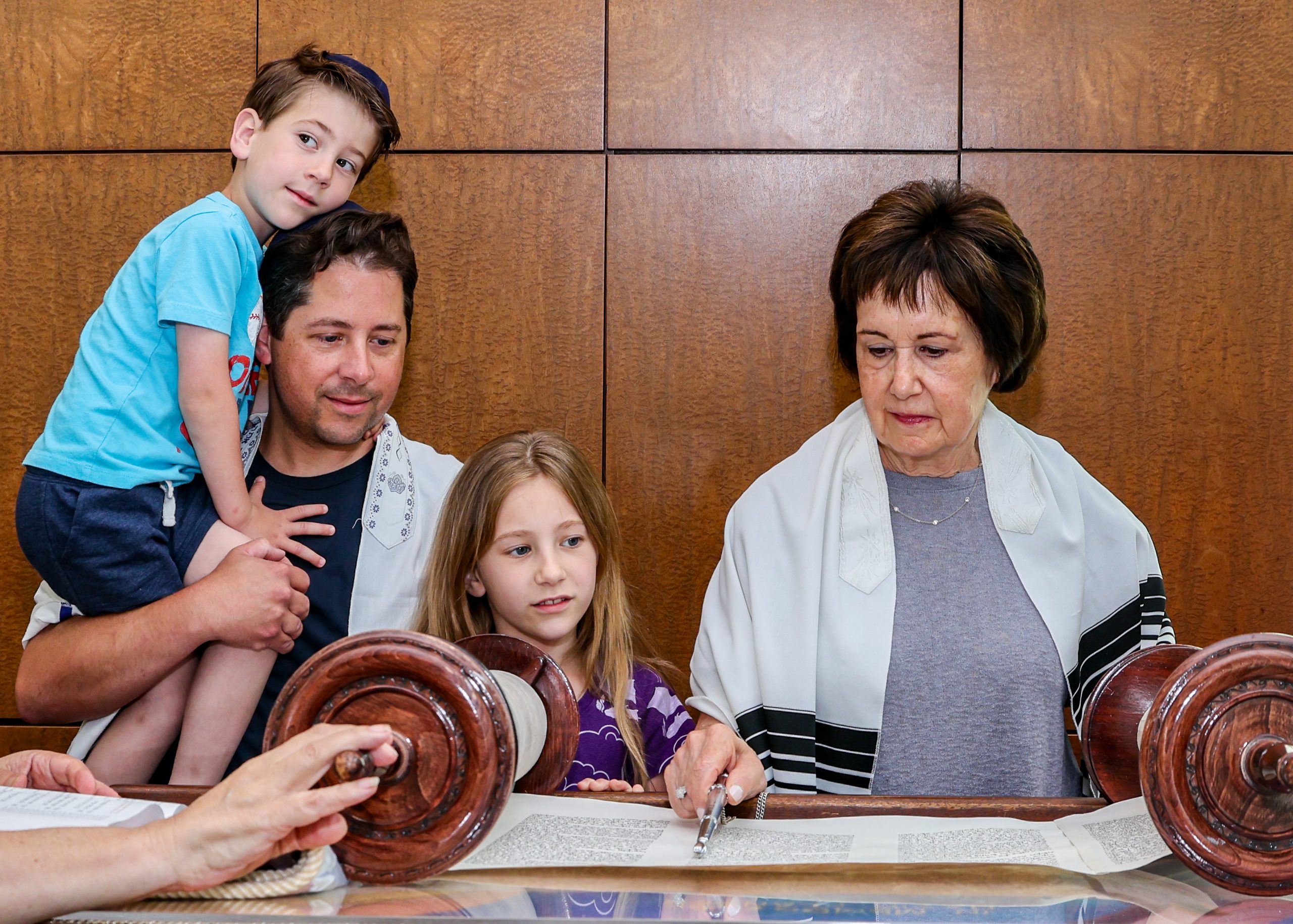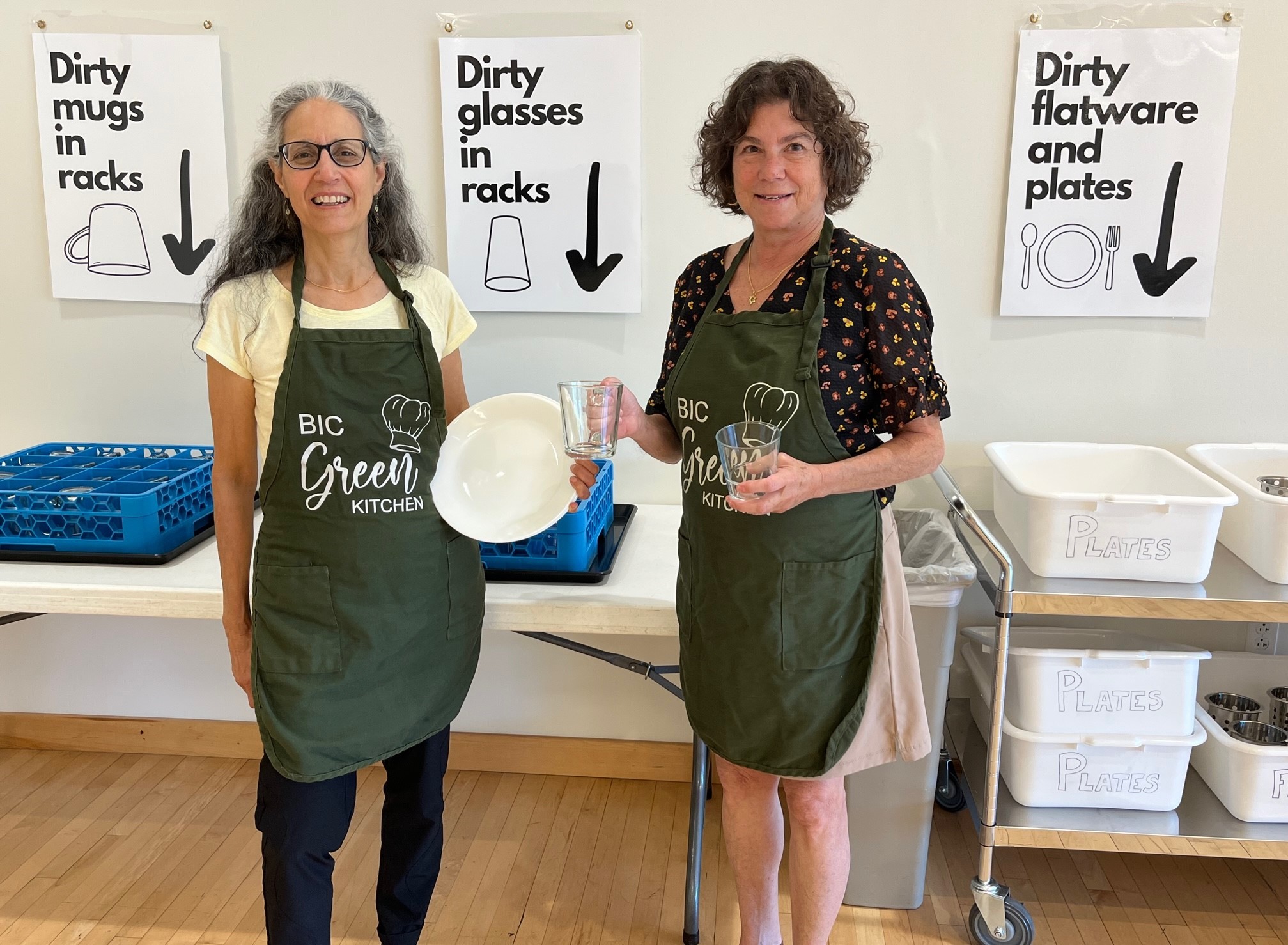
By Cynthia Hirsch and Leslie Fields
At Beth Israel Center in Madison, Wisconsin, we are a community of volunteers. Our medium size shul of 275 families does virtually everything with volunteers, including our weekly Shabbat kiddush lunch. There is only one kosher caterer in Madison, Wisconsin…so we usually make the tuna salad and vegetable humus platters ourselves, and we used to eat everything using disposable plates, cups, and flatware.
Our commitment to the environment is not new… We installed solar panels due to a very generous financial investment. We hired an organic landscape company that maintains our grounds without pesticides and spruced up our gardens with pollinator-attracting perennials. We have done energy audits.
Years ago, we started mumbling among ourselves about all those paper plates feeding the local landfill and our single-use plastic trash that harms waterways, but we didn’t think we could pull off the transition to real dishes. There was skepticism about our capacity for additional volunteers to do the extra tasks and skepticism about the extent the congregation would “buy in” to a less convenient routine. It turns out we did not give our wonderful community enough credit……we have done it, and the whole Kahal is proud.
First, our Rabbi Betsy Forester, who was enthusiastic about the project, approved using a paid non-Jewish person to run the dishwasher on Shabbat. So, a team of two of us put together a budget. What would it take to buy new lightweight Corelle dairy dishes, sturdy mugs, stackable water glasses, washable tablecloths, and the additional racks and dolly carts necessary to wash all of this in our industrial Hobart dishwasher?
Our estimate was about $5,000 for the initial purchases, with an additional ongoing budget request to pay the new employee. The latter expense would be partially offset by eliminating the cost of disposables. After close consultation with our Executive Director Elissa Pollack, we presented the request to our budget committee, assuming we would need to raise the funds. We were grateful when the budget committee and the Board of Directors agreed that this initiative reflects our Shul’s values, and our annual budget should therefore accommodate these initial costs.
Putting the Pieces Together
Numerous trips to the local restaurant supply store followed, where we evaluated cups, mugs, and plates for easy handling. We measured our pantry shelves and existing equipment to ensure a solid fit. We researched the best prices for the new purchases and, of course, consulted staff at every step. We completely rearranged our pantry to make room for the new items and ensure they were easily stored and accessible. We made the decision to only transition dairy dishes as that is what is used most of the time. We have meat pottery that is heavier but could be used if desired. The heavy 1950s dairy pottery was packed up and donated to a local non-profit.
Three hundred plain white dinner and dessert plates were purchased from the Corelle outlet. During an archeological dig into the caverns of our storage room, we unearthed two “poker chip” style carts that easily hold all the new plates. One cart now lives in the pantry next to the kitchen and is pulled out weekly for Shabbat Kiddush. The other cart with the remaining dishes lives in a storage room and is pulled out when more dishes are needed for larger events. Both have well-fitting dust covers.
Three hundred sturdy glass mugs were purchased from Crate and Barrel, and 300 stackable water glasses were purchased from our restaurant supply store. Racks were purchased in which clean glassware is stored, used glassware is deposited and taken through the Hobart, and then stored in the same racks for the next use. The racks stack neatly on dolly carts and slide under the pantry shelves. As with the plates, extras are stored in a more remote storage area but are easily wheeled to the kitchen when needed.
Just as this was accomplished came COVID…..and we ceased serving Kiddush for a while. We used that time to build momentum. We knew we had to create excitement in the Kahal. We sent out group emails to community members who “lean green” and whom we knew would support the effort. We kept this larger group informed of our progress and plans and let them know that we would eventually ask for their help. We needed this larger green team to feel there were more than just the two of us invested in moving the project along.
We met with staff to map out the new procedure, carefully designating how each dish or glass got from table, to bus bin, to dishwasher, and back to the pantry. Large attractive signs were created to guide congregants in bussing their dishes, glassware, and flatware. We purchased a cart for the labeled bus bins that would be wheeled into the social hall each Shabbat morning. It was important to make sure that the system was organized well, that all volunteers and staff were consulted, and that nothing appeared chaotic.
Our First “Green” Kiddush
Finally, we emerged from the pandemic, and our much-loved tuna salad…and schmoozing!…. was back. So, we set a date. Our first “Green Kiddush” would be Earth Day on April 22, 2023. We continued to preview the transition in all newsletters and notices, including announcements from the bimah. This generated more interest and excitement in the project. We recruited “green volunteers,” held training sessions for them and the staff, and supplied them with cute green aprons.
The Shabbat before our Earth Day launch, our Rabbi devoted most of her D’var Torah to environmental concerns and obligations. She recognized and thanked our team for our work. On the Shabbat morning that we would finally transition, we each gave a D’var Torah, reminding our congregation that the Torah obligates us to Shomer Adamah (guard the earth) and that any inconvenience we experience is for the sake of an important mitzvah. Our Earth Day green kiddush was a huge success!
How It Works
We send out a quarterly sign-up to our group of about 30 trained “green volunteers.” We recruit 2-3 volunteers for each Shabbat, depending on the number of congregants expected for lunch. When our social hall is set up Friday morning, our shiny new plates are placed on the buffet table in the approximate correct quantity, along with flatware in attractive holders. Glassware is set out on the beverage tables. The bus station with signage is located on the wall closest to the kitchen. The station includes a cart with bus tubs labeled for plates and flatware next to a table with empty racks waiting for dirty mugs and water glasses. The garbage container for scaping dirty plates is next to the tubs.
After enjoying kiddush lunch themselves, our green volunteers put on their aprons and help congregants place their items in the right tubs. As tubs and racks fill up, volunteers carry them a few steps to the kitchen and deliver them to the employee operating the Hobart. Dishes and glassware are usually dry a few minutes after emerging from the wash cycle. Green volunteers make sure each item is clean and dry before putting it away in the pantry. Dirty tablecloths are collected and washed by volunteers before the next week.
Community Response
As of this writing, we have been at it for four months. Instead of the grumbling we worried about, compliments and thanks have come our way. We constantly check in with volunteers and staff to assess how it is going and address any glitches. Our kahal seems to enjoy participating in this new system, and many have volunteered to help. An unanticipated and delightful benefit seems to be the enhanced aesthetics of using non-disposables. Congregants linger and savor their hot tea longer when it’s in a lovely glass mug instead of a styrofoam cup.
In fact, our kahal has more big plans. We are currently figuring out how to replace the plastic shot glasses we use for our usual Shabbat morning “L’chaim” in the sanctuary. Some members are focused on improving recycling practices, composting food scraps, installing a rain barrel, and using cloth napkins. All in due time. Meanwhile, we are proud that our Kahal is making Madison, Wisconsin just a little greener.
Cynthia Hirsch is a past president and member since 1990 of Beth Israel Center in Madison, Wisconsin. She is retired from the Wisconsin Department of Justice where her law practice focussed on environmental litigation. Since retiring, she has done international pro bono work for Lawyers Without Borders, and she is Vice President of the Board of Directors of Wisconsin Conservation Voters. Reach out to her at [email protected].
Leslie Fields has been a member of Beth Israel Center for 28 years and is a founding member of the shul’s Green Team. She is a retired business owner

